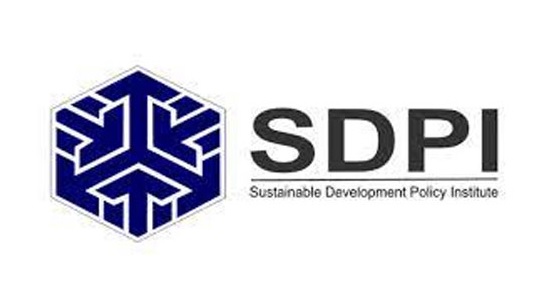- Advertisement -
ISLAMABAD, Dec 1 (APP):Stressing the need to exploit the potential of the carbon market in Pakistan to strengthen the ongoing efforts for environmental protection, experts sought an efficient policy framework to harness the potential.
These were the key takeaways of a session titled: ‘Effective Implementation of Carbon Markets in Pakistan’ at the 26th Sustainable Development Conference organized by the Sustainable Policy Development Institute (SDPI) here.
Dr Sardar Mohazzam, Managing Director of the National Energy Conservation and Efficiency Authority, said that a framework for the carbon market is under consideration. He stressed the need to focus on the mitigating sides of climate change instead of the adoption sides. He added that the carbon markets of different countries have different mechanisms and implementation requirements. Owing to the gap in demand and supply, power sector in Pakistan is facing challenges, he said, adding that in the winter season demand of electricity shrank to 8000 MW, whereas it jumped to 27,000 MW in the summer seasons, so to bridge the gap, the energy shortage is covered by different means and coal-fired power plants are among them. Referring to a study, he said, over 800 MW of electricity could be conserved by shifting 140 million existing fans to energy-saving fans.
Bilal Anwar, the Chief Executive Officer of the National Disaster Risk Management Fund, said that a lot of potential exists for the carbon market in Pakistan. Stressing the need for developing the required infrastructure to get its benefits like other countries, he called for enhancing the industrial base, as the current industrial base is limited in terms of carbon intensity. He said that agriculture is among other potential areas, therefore urgent policies are needed to tab these potentials.
Sameera Shaikh, the Joint Secretary for the Ministry of Climate Change, said that Pakistan is among the top 10 countries, which were the most affected due to extreme climate events. “The share of Pakistan in greenhouse gas emission was merely 1 per cent, she said, adding that during the Paris Agreement in 2021, it was agreed to reduce the emissions by 50 per cent by the end of 2030.” She said that only 15 per cent of resources would be generated domestically to implement the climate agenda whereas 35 per cent is contingent to the international funding. She added that Pakistan would require $101 billion for the energy sector transition. She said that many countries all over the world are looking into the carbon market to incentivize climate change action by reducing GHG emissions. She maintained that the government is finalizing the policy guidelines and regulatory framework for the volunteer carbon market to meet the climate goals.
Khurram Lalani from Resources Future reiterated the need for a robust policy framework for the effective implementation of the carbon market. Regulations and digital infrastructure development are also required for the effective implementation of the carbon market, he said, adding that public-private partnerships would also help harness the potential of carbon market. He said that long-term and continued policies would be the other measures as such projects take time to materialize the provision of dividends.
Dr Khalid Waleed, SDPI Research Fellow, underscored the critical nexus between the carbon market in Pakistan and equitable development. He emphasized the imperative of incorporating principles of economic justice, climate justice, and a just energy transition for a holistic and sustainable approach.

